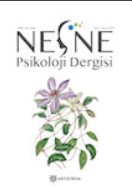A Test of the Socioemotional Selectivity Theory Among Young Adults
A Test of the Socioemotional Selectivity Theory Among Young Adults
Author(s): Cem SoyluSubject(s): Individual Psychology, Social psychology and group interaction, Neuropsychology, Psychology of Self, Social Theory
Published by: Sanat ve Dil Araştırmaları Enstitüsü
Keywords: Socioemotional selectivity theory; future time perspective; social network; young adulthood; emotional states;
Summary/Abstract: The primary assertion of the Socioemotional Selectivity Theory (SST) is that with increasing age, individuals become more selective in their social networks and consciously reduce their social network size. Although SST has received considerable support from studies conducted in mostly individualistic countries, such as the United States and Germany, there are very few studies in which it has been tested in collectivistic countries. Therefore, the present study aimed to test the SST argument in Turkey. There were 219 Turkish young adult participants, aged 18–28 (Mage = 20.07 years, SD = 1.76). Participants completed a Social Convoy Questionnaire, Future Time Perspective (FTP) scale and Positive and Negative Affect Schedule. Via the structural equation model, it was found that (a) open-ended FTP directly and positively related to positive affect, higher level of social satisfaction, and smaller social network sizes; and (b) social satisfaction mediated the relationship between FTP and young adults’ positive affect. The results confirm the SST’s arguments and highlight the importance of social satisfaction in helping shape young adults’ positive affect.
Journal: Nesne-Psikoloji Dergisi
- Issue Year: 11/2023
- Issue No: 27
- Page Range: 13-24
- Page Count: 11
- Language: English

